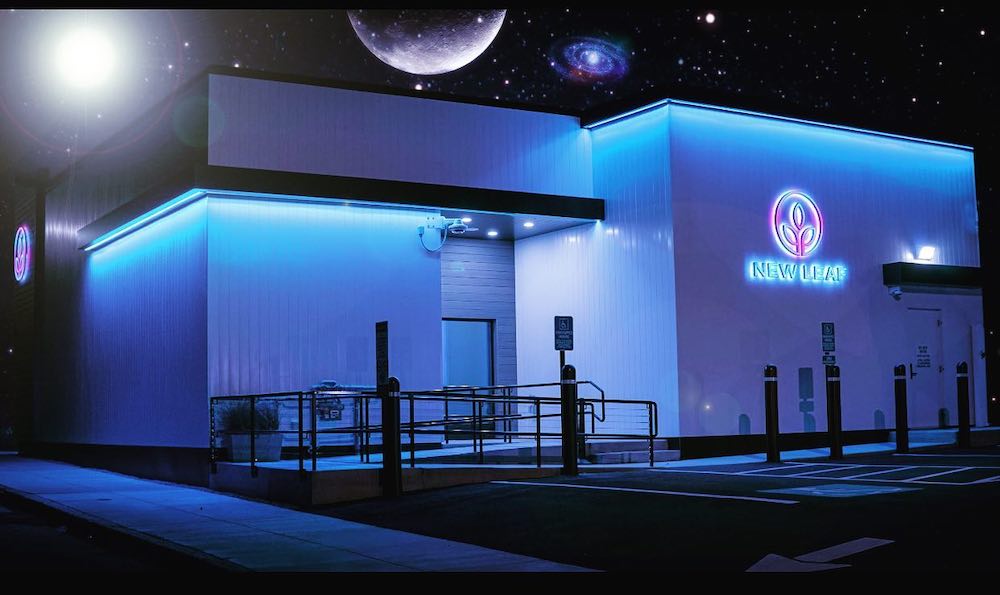Economy
Massachusetts marijuana establishments surpass $6 billion in gross sales as April 20 sets single day sales record

WORCESTER—Marijuana Establishments in Massachusetts surpassed $6 billion in gross sales last week, the Cannabis Control Commission announced on Wednesday. The agency also reported that the Commonwealth’s adult-use marijuana industry enjoyed a new record-breaking single sales day on April 20, a date recognized by the industry and celebrated by cannabis enthusiasts, tallying $8.5 million in sales.
“I continue to be encouraged by these sales milestones because they show that the industry is strong and efficiently regulated, both spurring economic development and critical tax revenue for the Commonwealth and providing safe, tested products for consumers and patients alike,” said Acting Chair Ava Callender Concepcion. “With a wave of new statutory and regulatory changes beginning to take shape in Massachusetts, I’m confident that our industry is well-positioned to continue adapting, expanding, and creating more equity-driven pathways for individuals pursuing their entrepreneurial and career aspirations.”
Aggregate data recorded in the state’s seed-to-sale tracking system, Metrc, by 355 Marijuana Retailers, 10 Delivery Couriers, 11 Delivery Operators, and one Microbusiness with a Delivery Endorsement that have commenced operations statewide showed that on Wednesday, April 17, $6,003,985,070 in gross sales had been generated. Massachusetts licensees surpassed the $6 billion mark less than eight months since reaching the $5 billion mark, which makes this period the shortest it’s taken for Massachusetts businesses to generate another $1 billion dollars in gross sales. As of April 21, 618 operating Marijuana Establishments have generated $488.3 million in sales so far for calendar year 2024.
For the first time, the Commission presented on its Open Data Platform a visualization illustrating the gross sales figures for transactions performed by licensed Marijuana Delivery Operators and Marijuana Couriers in Massachusetts, totaling $26.3 million to date. While members of the public will be able to view sales completed by Marijuana Delivery Operators, Marijuana Courier sales are recorded under the Marijuana Retailers with which they partner to do business. A delivery agreement sets forth the terms of those entities’ work together, and how a Marijuana Courier charges Marijuana Retailer customers for deliveries will vary based on their agreement (e.g., a flat fee, versus a daily rate per vehicle used, versus a percentage of the Marijuana Retailer’s sale). As a result, Marijuana Courier fee totals are not available.
Additionally, for public safety reasons, the agency is only parsing out delivery figures related to Marijuana Courier and Marijuana Delivery Operator licenses at this time. Marijuana Couriers’ first recorded deliveries occurred in 2021; Marijuana Delivery Operators’ first recorded sales occurred in 2022. Data for Microbusinesses with a Delivery Endorsement sales are not yet available. More information about each license type is available within the Commission’s Delivery FAQ.
The agency also released a new data visualization displaying the sales day totals for each April 20 from 2018 through 2024, giving greater insight into consumer trends and the positive impact of greater access to licensed Marijuana Establishments across the Commonwealth. More information is publicly available through the Commission’s Open Data Platform. Please note that all data is self-reported by licensees and adjusted for voided transactions. These datasets do not represent the Commonwealth’s tax earnings.
This $6 billion sales milestone comes at a pivotal time as the Commission completes two public education campaigns, one encouraging individuals to apply for the fourth cohort of the agency’s Social Equity Program before the April 30 deadline, and another raising awareness and highlighting resources for safe and responsible cannabis consumption during the month of April and every day of the year. Additionally, the Commission has published the final versions of its Model Host Community Agreement (HCA) and updated guidance documents relative to licensure and HCAs, and is currently accepting public comments on its new “Model Municipal Equity By-law or Ordinance” template, all of which are designed to assist host municipalities and license applicants/licensees comply with the new laws and regulations mandated by Chapter 180 of the Acts of 2022, An Act Relative to Equity in the Cannabis Industry.
-

 Community7 years ago
Community7 years agoNational Shrine of La Salette Festival of Lights 2017 set to begin
-

 Community6 years ago
Community6 years agoMassachusetts State Police looking for good home for retired dogs
-

 Crime6 years ago
Crime6 years agoFall River ranked most dangerous city in Massachusetts according to report
-

 latest7 years ago
latest7 years agoDurfee student allegedly overdoses on marijuana
-

 Community6 years ago
Community6 years agoVideo of Fall River Police goes viral
-

 Causes6 years ago
Causes6 years agoMissing Fall River woman found deceased
-

 Crime6 years ago
Crime6 years agoFall River Police add names to most wanted list
-

 Causes6 years ago
Causes6 years agoFall River teenager reported missing has been found




